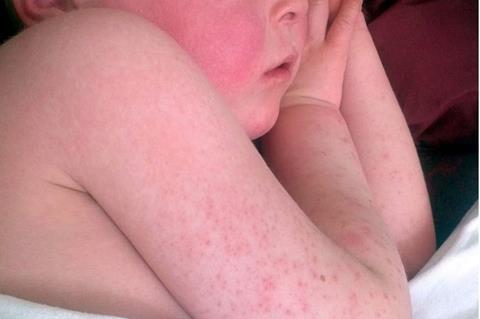Antibiotics could be given to children at schools affected by Strep A to stop the spread of the infection, schools minister Nick Gibb has suggested.

Mr Gibb said the UK Health and Security Agency (UKHSA) is “working closely with the schools involved and giving very specific advice to those schools which may involve the use of penicillin”.
He added that health officials are providing more general advice to parents - to look out for the symptoms including sore throat, fever, high temperature and a red or raised rash on the skin.
Nine children in the UK have now died of the infection.
On Monday health minister Lord Markham told the House of Lords that instructions have been given to doctors that where necessary they should be proactively prescribing penicillin as the best line of defence on this and that where there is a spread in primary schools, to work with local health protection teams and consider the use of antibiotics on a prophylactic basis.
The UK Health Security Agency told the PA news agency the measure of prescribing antibiotics to children in a school or nursery exposed to non-invasive Strep A was “rare”.
The agency added the move is only considered in “exceptional circumstances” by the Outbreak Control Team (OCT) on a “case-by-case basis”.
“There is no good evidence of (antibiotics’) effectiveness in routine outbreak control in this setting (involving children who have been contacts of non-invasive Strep A),” UKHSA said.
“It can be considered in exceptional circumstances by the OCT, for example when there are reports of severe outcomes, or hospitalisations.
“In school and nursery settings, antibiotic chemoprophylaxis is not routinely recommended for contacts of non-invasive (Group A streptococcus) GAS infection.”
Asked about the recent rise in cases on Monday, Prime Minister Rishi Sunak’s official spokesman said: “We are seeing a higher number of cases of Group A strep this year compared to usual.
“The bacteria we know causes a mild infection which is easily treated with antibiotics and in rare circumstances it can get into the bloodstream and cause serious illness.
“It is still uncommon but it’s important parents are on the lookout for symptoms.”
Illnesses caused by the Group A strep bacteria include the skin infection impetigo, scarlet fever and strep throat, and there has been a leap in the number of scarlet fever cases.
There were 861 cases reported during the week ending 27 November, according to the latest UKHSA figures, compared to an average of 186 for the same timeframe in previous years. the figure was slightly down on the previous week’s 901 cases, but the figure for the first 47 weeks of 2022 is already 10 times higher than the same period for 2021.
The number of cases of the more serious invasive group A streptococcal disease (iGAS) in England and Wales in the week ending 27 November was eight.







No comments yet